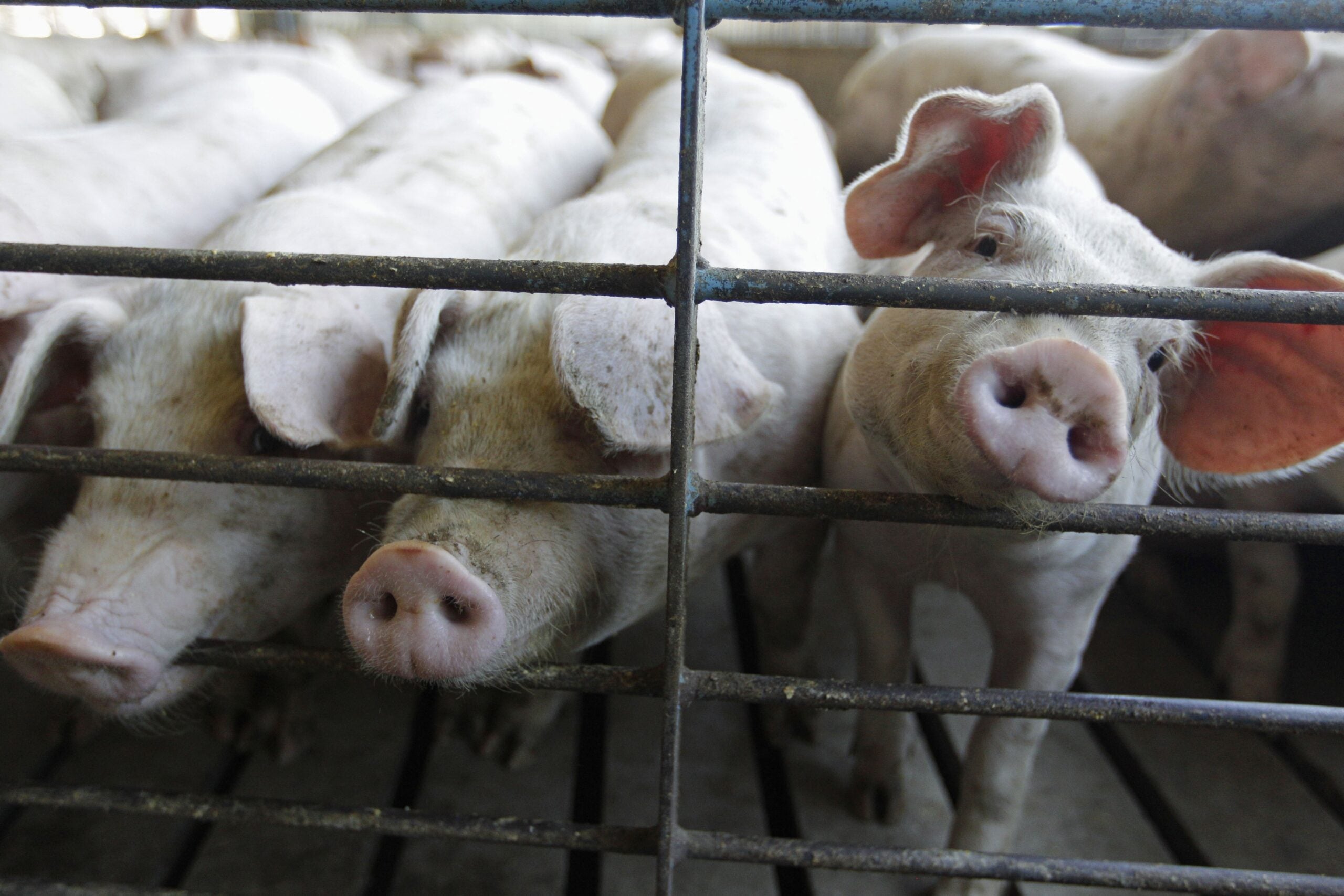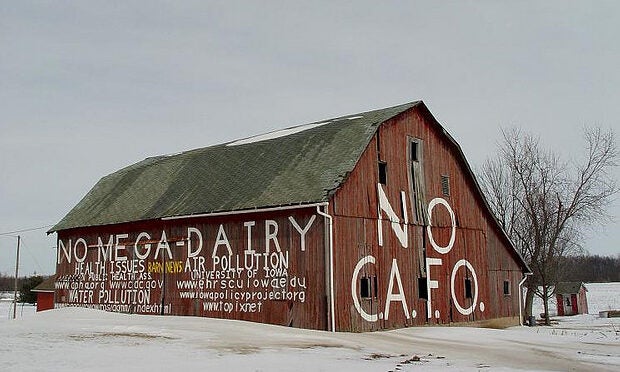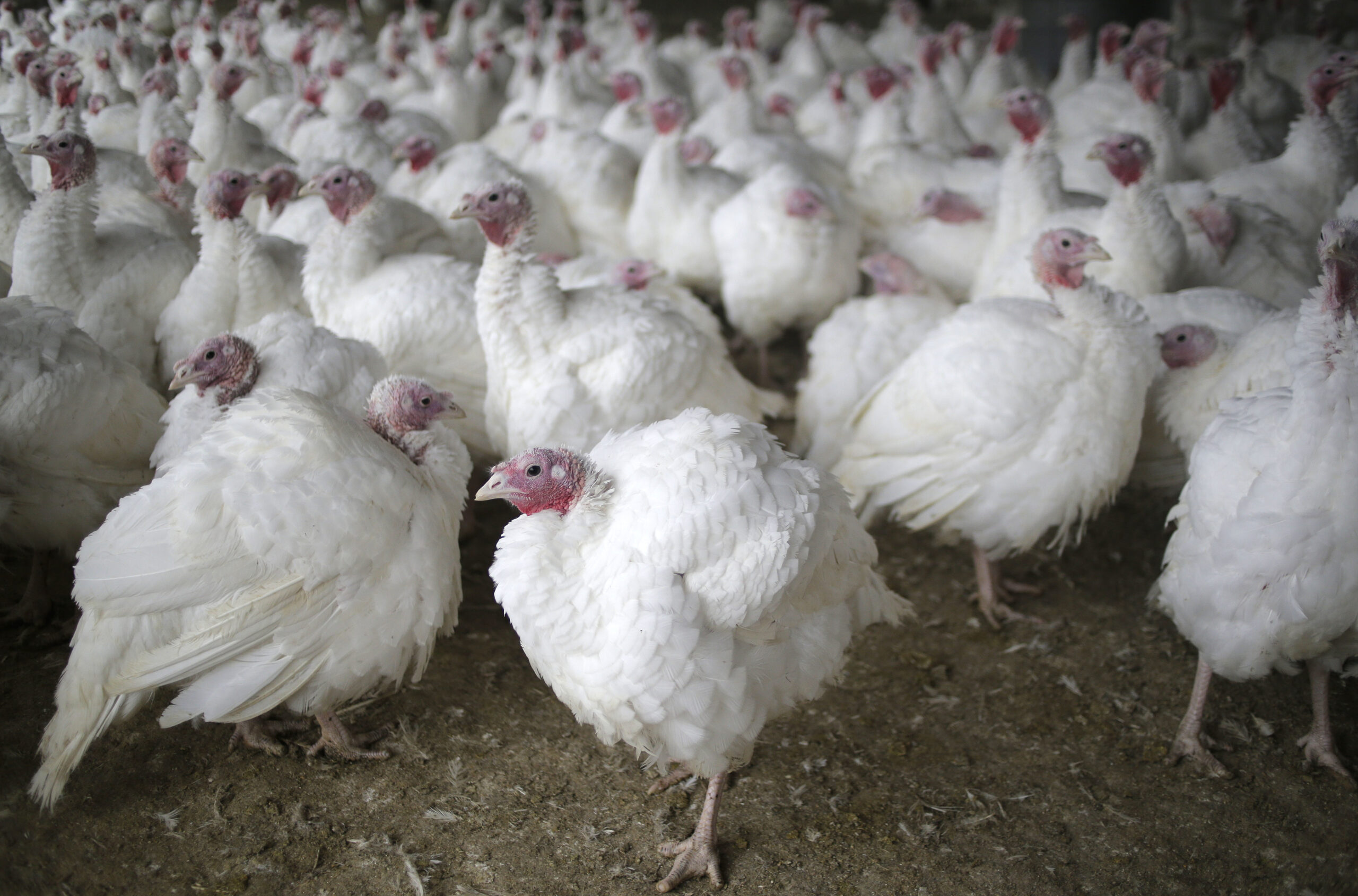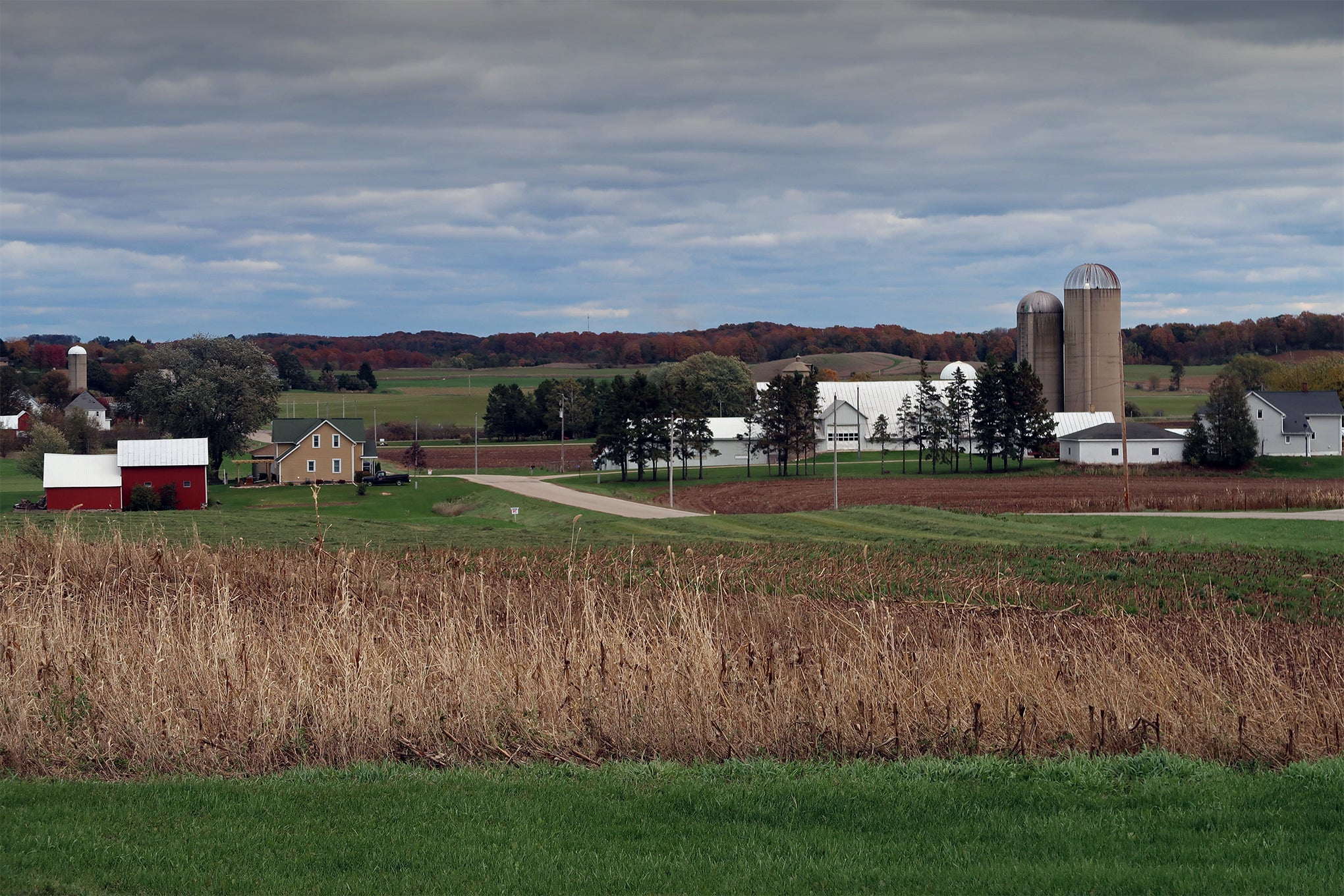The Burnett County Board has passed a one-year moratorium on large-scale farms with 1,000 or more animal units. The move comes after Cumberland, LLC announced plans to build a $20 million farm for up to 26,000 hogs in the town of Trade Lake earlier this year.
Burnett County Board Chair Don Taylor said a study committee will now examine the impact of large-scale farms known as concentrated animal feeding operations (CAFOs). The committee will research their effects on air quality, groundwater and surface water.
“The committee is just going to take a look at the whole thing and determine what we feel are the best practices for Burnett County,” said Taylor.
Stay informed on the latest news
Sign up for WPR’s email newsletter.
Taylor said the moratorium is not aimed at the Cumberland proposal although he noted it raised their awareness of what local standards may be lacking for large farms. He said the idea is to pursue proper regulation rather than blanket denial of CAFOs.
Thorp farmer Jeff Sauer, a member of the proposed Cumberland CAFO, feels the moratorium places more regulation and restrictions on farming.
“I still want to be a good steward. I still want to be a good neighbor. That’s our goal. That’s our plan,” said Sauer. “But, the motive out there is to prevent it and eliminate it — stop it.”
Sauer, who is working with Iowa-based outfit Suidae Health and Production, said the county hasn’t raised any issues until now with other large operations in the county, which currently has one dairy CAFO. He said Cumberland will pursue legal action against Burnett County if they challenge its application for the hog farm.
The farm would produce at least 6.8 million gallons of manure per year, according to documents filed with the state. It’s also located near several lakes and the Trade River, which is a tributary of the St. Croix River. The amount of manure that would be produced by the operation has raised fears among county residents that it will harm property values, human health and the environment, including Frederick Painter, a spokesman for the recently-formed nonprofit corporation KnowCAFOs.
“We are hoping that the moratorium and a rational ordinance will make them think twice about this area,” said Painter. “It’s not like we want them to go elsewhere, but we certainly don’t want them here.”
Retired farmer Gene Olson was one of three board members to vote against the moratorium. He said it was too vague and discourages farming, adding opponents don’t realize it won’t impact the Cumberland proposal. The company had already filed a pre-application with the state prior to its passage.
“They don’t want large operations and the way of the family farm is dead,” said Olson. “You cannot make it living on 40 cows anymore. You just can’t.”
Erik Melin has a 250-acre farm in the county and is taking over his father’s roughly 2,000 acres of land. The Cumberland farm bought about 35 acres from the Melin family for its operations. He said the moratorium is disappointing and affects other farmers in Burnett County.
“When are we going to stop getting attacked for wanting to have profitable businesses?” said Melin. “If we can’t make money as a small farm and we can’t be a big farm, what are we supposed to do?”
However, Painter said he wants farmers to know opponents of the Cumberland proposal support agriculture in the area.
“We’ll buy your products locally. If you bring your meat to a meatpacker, we’ll buy it. If you bring your produce to a grocery or farmer’s market, we’ll buy it,” said Painter. “We’re happy to support you, but we can’t support something this large. It’s not family farming. It’s factory farming.”
The moratorium could be rescinded early or extended for another six months depending on the time it takes the committee to study the effects of large farms.
Wisconsin Public Radio, © Copyright 2025, Board of Regents of the University of Wisconsin System and Wisconsin Educational Communications Board.




